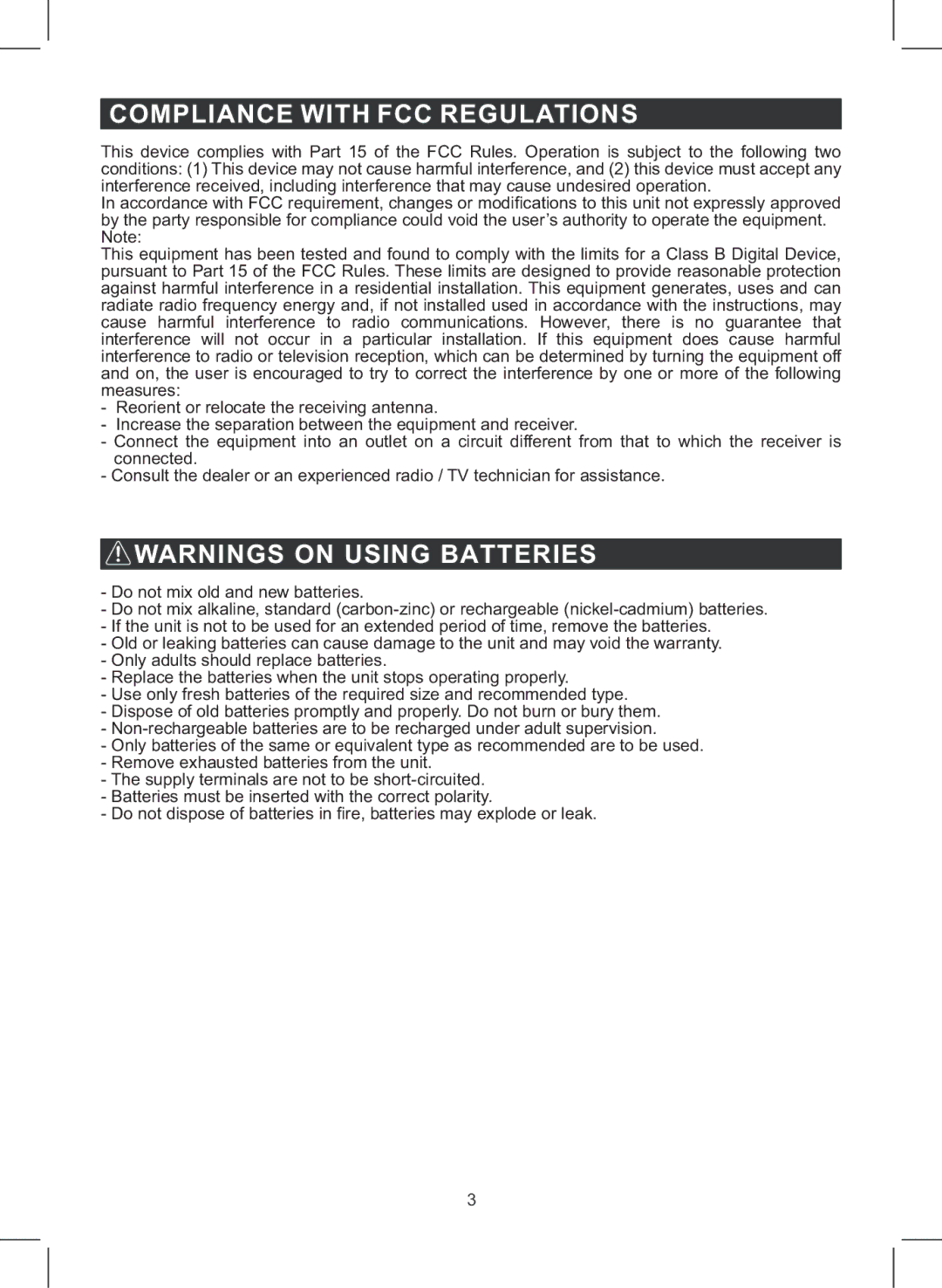
COMPLIANCE WITH FCC REGULATIONS
This device complies with Part 15 of the FCC Rules. Operation is subject to the following two conditions: (1) This device may not cause harmful interference, and (2) this device must accept any interference received, including interference that may cause undesired operation.
In accordance with FCC requirement, changes or modifications to this unit not expressly approved by the party responsible for compliance could void the user’s authority to operate the equipment. Note:
This equipment has been tested and found to comply with the limits for a Class B Digital Device, pursuant to Part 15 of the FCC Rules. These limits are designed to provide reasonable protection against harmful interference in a residential installation. This equipment generates, uses and can radiate radio frequency energy and, if not installed used in accordance with the instructions, may cause harmful interference to radio communications. However, there is no guarantee that interference will not occur in a particular installation. If this equipment does cause harmful interference to radio or television reception, which can be determined by turning the equipment off and on, the user is encouraged to try to correct the interference by one or more of the following measures:
-Reorient or relocate the receiving antenna.
-Increase the separation between the equipment and receiver.
-Connect the equipment into an outlet on a circuit different from that to which the receiver is connected.
-Consult the dealer or an experienced radio / TV technician for assistance.
![]() WARNINGS ON USING BATTERIES
WARNINGS ON USING BATTERIES
-Do not mix old and new batteries.
-Do not mix alkaline, standard
-If the unit is not to be used for an extended period of time, remove the batteries.
-Old or leaking batteries can cause damage to the unit and may void the warranty.
-Only adults should replace batteries.
-Replace the batteries when the unit stops operating properly.
-Use only fresh batteries of the required size and recommended type.
-Dispose of old batteries promptly and properly. Do not burn or bury them.
-
-Only batteries of the same or equivalent type as recommended are to be used.
-Remove exhausted batteries from the unit.
-The supply terminals are not to be
-Batteries must be inserted with the correct polarity.
-Do not dispose of batteries in fire, batteries may explode or leak.
3
